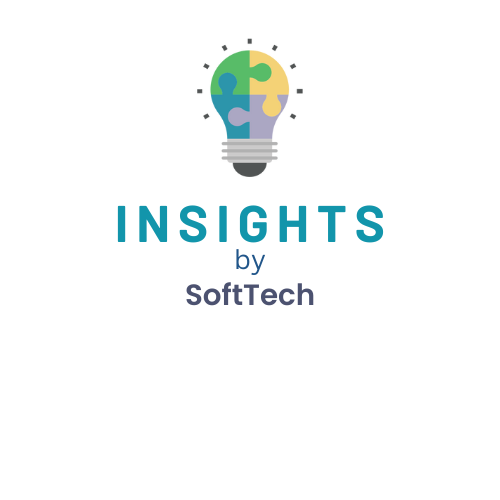Last Updated on February 24, 2024 by softtech
Abstract:
Efficient procurement management is essential for the success of construction projects, yet many firms still rely on manual processes that are prone to errors and delays. This white paper explores the critical role of integrating advanced procurement features into Construction Enterprise Resource Planning (ERP) systems to streamline workflows, enhance collaboration, and mitigate risks. By leveraging technology within a comprehensive ERP framework, construction companies can achieve greater efficiency and cost savings in procurement processes.
Introduction:
Construction projects are complex endeavors that require careful coordination of resources, including materials, equipment, and services. Procurement, the process of acquiring these resources, is a critical aspect of project management. However, traditional procurement methods often involve manual paperwork, fragmented communication, and limited visibility into the supply chain, leading to inefficiencies and cost overruns. To address these challenges, construction ERP systems need to incorporate advanced procurement features that automate and streamline procurement workflows while providing real-time visibility and control over the entire process.
Key Challenges in Construction Procurement:
- Fragmented Communication: Communication between project stakeholders, including architects, engineers, procurement teams, and suppliers, is often disjointed, leading to misunderstandings and delays in procurement activities.
- Limited Visibility: Lack of real-time visibility into procurement activities, such as order status, inventory levels, and supplier performance, hampers informed decision-making and increases the risk of project delays and cost overruns.
- Compliance Risks: Compliance with regulations, contractual agreements, and quality standards is critical in construction procurement. Manual processes increase the likelihood of non-compliance, leading to legal issues, project disruptions, and reputational damage.
- Inefficient Supplier Management: Managing relationships with multiple suppliers, evaluating supplier performance, and ensuring timely deliveries are challenging tasks in manual procurement systems, often resulting in suboptimal supplier selection and performance.
- Cost Overruns and Delays: Inefficient procurement processes contribute to cost overruns and project delays, impacting project profitability and client satisfaction.
Integration of Advanced Procurement Features in Construction ERP:
To address the challenges outlined above, construction ERP systems should incorporate the following advanced procurement features:
- Centralized Procurement Portal: A centralized procurement portal within the ERP system serves as a single point of access for all procurement activities, allowing stakeholders to submit requisitions, track orders, manage contracts, and collaborate with suppliers in real-time.
- Automated Procurement Workflows: Automated procurement workflows streamline the entire procurement lifecycle, from requisition approval to supplier selection, purchase order generation, receipt of goods, and invoice processing. Workflow automation reduces manual errors, accelerates procurement cycles, and enhances process transparency.
- Supplier Collaboration Tools: Integrated collaboration tools enable seamless communication and collaboration between construction companies and their suppliers. Features such as supplier portals, electronic bidding, and online catalogs facilitate efficient sourcing, negotiation, and contract management.
- Real-Time Analytics and Reporting: Advanced analytics and reporting capabilities provide real-time visibility into procurement KPIs, such as spend analysis, supplier performance, inventory levels, and procurement cycle times. Actionable insights empower decision-makers to identify bottlenecks, optimize procurement strategies, and mitigate risks proactively.
- Compliance Management: Built-in compliance management features ensure adherence to regulatory requirements, contractual agreements, and quality standards throughout the procurement process. Automated compliance checks, document management, and audit trails enhance transparency and reduce compliance risks.
Benefits of Integrated Procurement in Construction ERP:
- Improved Efficiency: Streamlined procurement processes reduce cycle times, eliminate bottlenecks, and improve overall operational efficiency, enabling construction companies to deliver projects on time and within budget.
- Cost Savings: Optimized procurement strategies, enhanced supplier collaboration, and better cost visibility lead to cost savings through negotiated discounts, reduced inventory carrying costs, and minimized project overruns.
- Enhanced Visibility and Control: Real-time visibility into procurement activities, coupled with advanced reporting capabilities, provides stakeholders with greater control over the procurement process, enabling informed decision-making and proactive risk management.
- Better Supplier Relationships: Integrated supplier management tools facilitate closer collaboration with suppliers, fostering stronger relationships, improved communication, and better supplier performance.
- Regulatory Compliance: Built-in compliance features ensure regulatory compliance, contractual adherence, and quality assurance, reducing legal risks and safeguarding project integrity.
Conclusion:
The integration of advanced procurement features within Construction ERP systems is essential for optimizing procurement processes, enhancing collaboration with suppliers, and driving greater efficiency and profitability in construction projects. By leveraging technology to automate and streamline procurement workflows, construction companies can mitigate risks, reduce costs, and achieve project success in today’s competitive marketplace.
About Author
Olivia Jones
Technology Specialist
Olivia is a highly skilled and experienced Technology Specialist with 10+ years of hands-on expertise in the rapidly evolving field of technology. She has a proven track record of successfully implementing and managing a wide range of technological solutions, ensuring optimal performance and efficiency. Olivia possesses a deep understanding of industry trends and emerging technologies, enabling her to provide strategic guidance and drive innovation within organizations. With a strong focus on problem-solving, she consistently delivers tailored solutions that align with business objectives while maximizing productivity and cost-effectiveness.
About SoftTech Engineers
A leading IT company (www.softtech-engr.com) facilitating business and technology transformation across the AEC industry through innovative software products and solutions. Equipped with 25+ years of deep domain expertise and industry knowledge, SoftTech has helped more than 4500 clients & government organizations, with more than 25000 users in India and around the world to gain a competitive edge and lead from the front in the industry.

